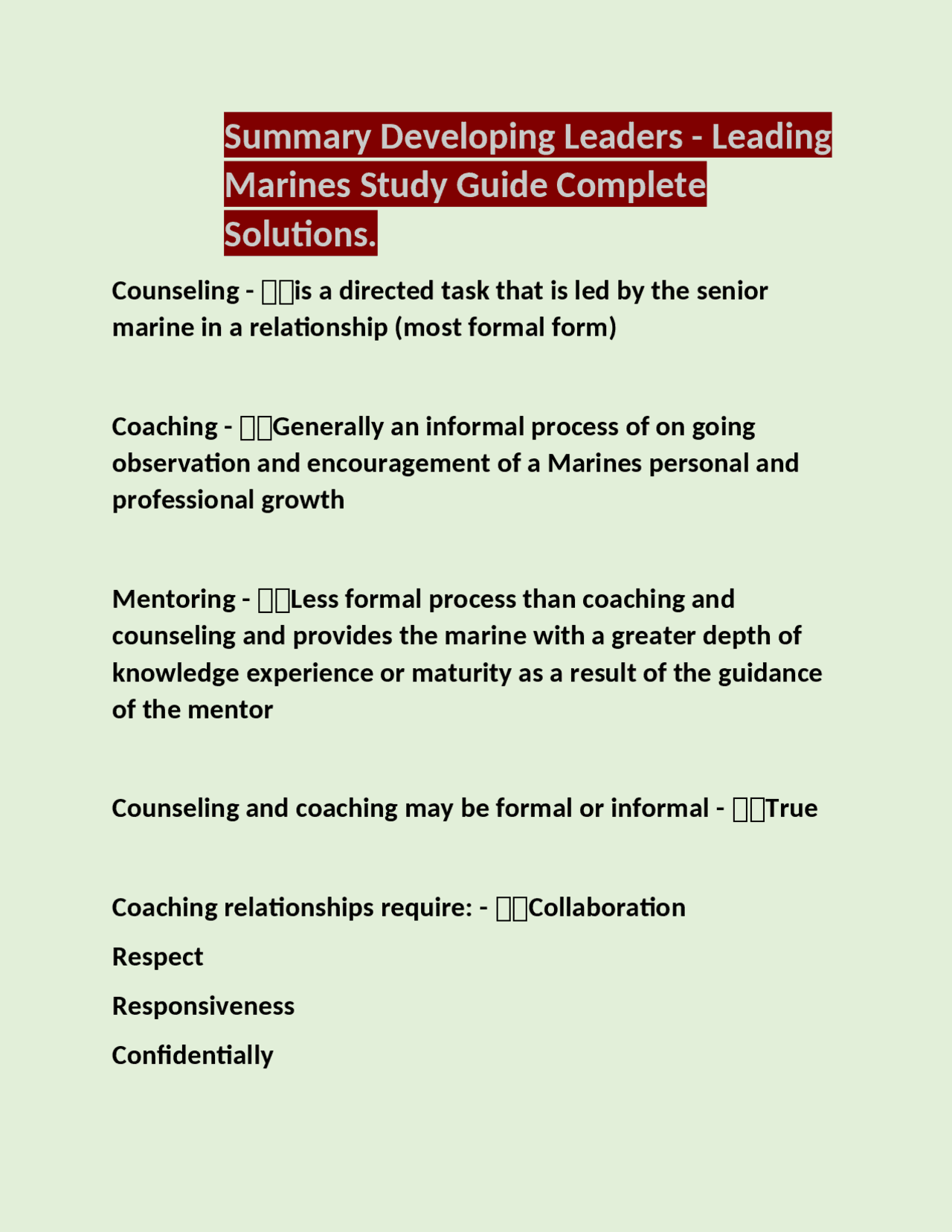As a Marine leader, you have a great responsibility on your shoulders. You are not only responsible for the lives of your subordinates, but also for the success of the mission. The ability to lead effectively is critical to achieving success in any military operation. This is where leadership tools come into play. In this article, we will explore some of the leading marines leadership tools that every commander should know.
Understanding Leadership
Before we dive into specific leadership tools, it’s important to understand what leadership is and why it’s so crucial to the success of any organization. At its core, leadership involves influencing others towards a common goal or objective. It’s about inspiring and motivating people to work together towards a shared vision.
Leadership is not just about giving orders or making decisions. It’s about building relationships with your subordinates and gaining their trust and respect. A good leader knows how to communicate effectively, listen actively, and provide feedback in a constructive manner.
Effective leaders are also able to adapt their style depending on the situation at hand. They know when to be authoritative and when to take a more collaborative approach. They understand that different situations require different types of leadership.
Now that we have a better understanding of what leadership entails let’s explore some of the leading marines leadership tools that can help you become a more effective commander.
Leading Marines Leadership Tools
1) Mission Command
Mission command is an essential tool for any Marine leader. It involves giving your subordinates the freedom and flexibility to make decisions based on their own judgment and expertise. This type of leadership empowers subordinates and encourages them to take ownership of their tasks.
Under mission command, leaders focus on providing guidance and direction rather than micromanaging every aspect of the operation. This approach allows for greater innovation and adaptability in response to changing circumstances.
2) Communication Skills
Effective communication is crucial to successful leadership. As a Marine leader, you must be able to clearly articulate your vision and goals to your subordinates. You also need to be an active listener and seek feedback from your team.
Good communication skills involve being concise yet detailed, expressing empathy, and being open to different perspectives. By fostering open and honest communication, you can build trust and respect with your subordinates.
3) Mentoring
Mentoring is another effective leadership tool that can help you develop the skills of your subordinates. A good mentor provides guidance and support while also challenging their mentees to grow and improve.
Effective mentoring involves setting clear expectations, providing constructive feedback, and offering opportunities for growth and development. By investing in your subordinates’ professional development, you can build a strong team that is capable of achieving great things.
4) Emotional Intelligence
Emotional intelligence refers to the ability to recognize and manage one’s own emotions as well as those of others. In a military setting, emotional intelligence is critical for building strong relationships with subordinates and navigating complex interpersonal dynamics.
Leaders with high emotional intelligence are able to remain calm under pressure, empathize with their subordinates’ perspectives, and respond appropriately to different emotional states. This type of leadership fosters a positive work environment where people feel supported and valued.
5) Decision-Making Skills
As a Marine leader, you will be required to make tough decisions on a regular basis. Effective decision-making involves gathering all relevant information, weighing the pros and cons of each option, and making a timely choice based on the available evidence.
Good decision-makers are able to balance risk and reward effectively. They are also comfortable taking calculated risks when necessary. By making sound decisions, you can inspire confidence in your subordinates and lead them towards success.
Conclusion
Becoming an effective Marine leader requires a combination of skills and tools. By incorporating mission command, communication skills, mentoring, emotional intelligence, and decision-making skills into your leadership style, you can build a strong team that is capable of achieving great things.
Remember that leadership is not about being perfect or having all the answers. It’s about being willing to learn and grow alongside your subordinates. By embracing these leading marines leadership tools, you can become the kind of commander that inspires others to follow your lead.
Wiki Reference:
https://en.wikipedia.org/wiki/Leadership




